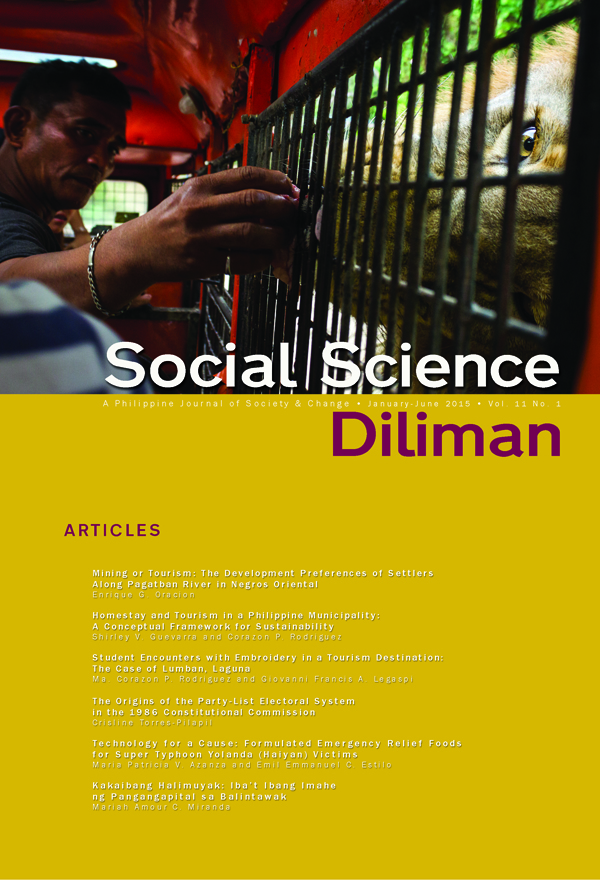Homestay and Tourism in a Philippine Municipality: A Conceptual Framework for Sustainability
Abstract
The alternative definition of tourism as an act of “gathering, building, dwelling, and learning” (Phipps, 2007) was enacted in a homestay program of Sariaya, a municipality in southern Luzon in the Philippines. The hosts, the student butlers or guides, and the tourism council contributed to the visitors’ being able to “gather” sensory perceptions of Sariaya; “build,” make sense, and understand these sensory perceptions enough to “dwell” and be part of the “ visited” community from where “learning” and sweet memories of the municipality have become part of their personhood. More than photographs, these shared memories will probably be part of the discourse of tourism students. For a homestay program to be sustainable, however, the following must be done: change the paradigm among homestay participants by arriving at competitive pricing strategies, establish standardized pricing and more efficient homestay services, discover the potential of storytelling as a feature of homestay, address the issue of privacy among homeowners, and establish an acceptable return for participating in the homestay program. The last point is important because sustainability of the project is dependent not only on the fulf illment of sociocultural objectives but also on economic and f inancial objectives. Likewise, sustainability can be realized if there is a close coordination among the stakeholders, namely, the Sariaya Tourism Council, the local government, the academe, local businessmen, nongovernmental organizations, and national tourism off ices.
Keywords: Homestay, sustainability, stakeholders, tourismic experience, community empowerment


